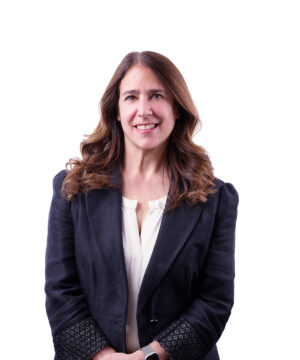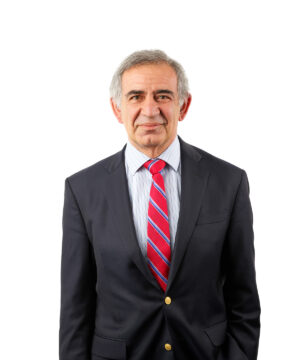Listen in your browser or subscribe via your preferred podcast platform: Listen on Spotify | Listen on Apple Podcasts
Transcript:
Tammy: Hello and welcome to another edition of Morning Commute with Miller Thomson. I’m your co-host today, Tammy Farber with my partner Bryan Buttigieg. We’re both specialists in environmental law at Miller Thomson and our practices cover both litigation and transaction sides of the legal practice, obviously with a focus on environmental matters.
Our topic today is dealing with experts in our environmental practices, and we deal with experts in a plethora of ways. It’s not just about whether contamination is present, if we’re dealing with a contaminated site, what impact that contamination is having, whether remediation is required or what technologies or processes to employ or for how long or for how much money. It’s really pervasive in many areas of law including things like estate law, charities law, insolvency, obviously litigation, business transactions and even family law where assets are being transferred.
Today, we want to talk about some considerations for what makes environmental issues unique in relation to the health of an expert and why simple questions like ‘how much is this going to cost?’ why it makes those questions trickier than you’d think.
[Intro music] Welcome to Morning Commute with Miller Thomson, a podcast for Canada’s legal community and those generally interested in Canadian law. Each month, our lawyers delve into current issues surrounding the legal landscape, providing in depth insight and analysis on key developments in today’s Canadian marketplace. Now here are today’s hosts. [Intro music]
Tammy: Bryan, take it away for us in terms of what is unique about environmental claims and environmental experts.
Bryan: Thanks Tammy. What makes them unique compared to many other legal problems that we see in our profession is the very nature of the impacts. Environmental impacts tend to be unseen. They tend to be often underground. You can’t see them. You can’t really quantify them. The impacts may not be obvious and what to do about them won’t be readily apparent. As you said Tammy, people often want, our clients, will often want relatively simple answers. They want to know, is the land contaminated? Well what exactly does contaminated mean? How much contaminated is the property? Do we have to compare it to some standard and, if so, what standard? Does it impact my use of the land? Where did this contamination come from? Where is it going to go? What can we do about it? And of course, who pays and how much is it going to cost? These are all questions that in the end are a function of the things that we can’t see when we walk up to the property and are going to need more than just legal advice. They’re going to need an expert to help us get the factual underpinning for these answers and typically, these will inevitably start off with some form of civil litigation and you really do need to work through all the different stages of civil litigation and the use of such an expert.
So Tammy, I think we can start our specific topics by talking about using environmental experts in civil litigation. How would you use an expert in starting a claim or preparing a claim for a trial for examinations for discovery?
Tammy: Sure, thanks Bryan. And listen, we’ve both litigated a lot of cases, we’ve both worked with a ton of experts whether in engineering or even finance, property valuation. You know the first part when you’re dealing with a claim, whether on the defense side or on the plaintiff side, is really understanding what kind of claim you’re dealing with and experts can certainly help us in that regard.
So, for example, if you have a negligence claim involving an engineer or an environmental consultant who maybe didn’t do their job properly, or at least maybe that’s an allegation, you might want an expert’s help to asses the strength of a possible claim or a possible defense. On a contaminant migration case, you might want hydrogeologists, for example, understanding ground water movement. You may want experts to talk about, well, where is the source of the contamination. You might need a forensic expert who really is involved in the chemistry side of things as opposed to hydrogeology. On a remediation case, you might need to talk about remedial approaches, this goes back to, Bryan, what you were saying earlier about the cost. It’s not just the cost but, well the cost is obviously going to change based on what kind of approach you’re taking, what kind of approaches are really reasonable.
And so, when you think about a civil claim, there’s the liability side of a claim in all cases and there’s the damages side. And the experts can really help on the damages side of the case to assess what’s reasonable. They can also help in explaining, particularly if you’re in a jurisdiction that we don’t particularly deal with often, but if we’re outside of our jurisdiction in Canada, they can also help on the regulatory framework and what regulators particularly, you know, ministries of environment across the country may want to see in a remediation and might want to approve in a remediation. And that can also affect the damages side of the case.
You know, you need experts not only in the early portions of a case but also throughout the case involving discovery and looking at how to evaluate what the other side’s case is really about. Did they chose the right approach? What questions do you want your expert to ask of other experts that might be involved? You know, when we live through the case of litigation, there’s the start, there’s the discoveries, there’s invariably a mediation or a negotiation, Bryan, that is a huge portion of your practice as a mediator as well. Tell us about experts in that context.
Bryan: Thanks Tammy. Yes, as most of us who litigate know, invariably 90% or even more of litigation does not go to trial but ends up in some form of negotiated settlement either directly between the lawyers or using a mediator. And again, it’s really hard in this field to work out any sort of settlement without the use of experts. They can help you come up with creative solutions that you might not have thought about. They can always help with finding the solution that is more than just simply writing a cheque from one side to another. Because often these problems don’t lend themselves to that kind of a solution.
I had a case some years ago, for example, Tammy, where we had a contamination that was of great depth in a property, literally about 30m, 40m below the ground and a developer who wanted to develop the property with a commercial building, not going down anywhere near to that depth, but the clean up was going to take so long it would not fit with the developer’s time schedule which could result in a huge loss of money to them, of course. Using an expert, we were able to develop a clean up that was literally a remediation method that was built right into the infrastructure of the building – so there was piping laid under the footings, there was an extraction system was built into that same building and this system was set up to work for quite a long time. And the advantage of it is that the expert was able to win the confidence of the developer, as well as our own client who was ultimately paying for it, and we were able to effectively to a clean up in a pace that made sense while allowing the development to go ahead. You could not have settled a case like that without the use of the expert, without, frankly, their competence in the solution that they were proposing.
So, you don’t often get something as dramatic as that happen but it is quite common to have to rely on experts to say ‘Well, we need a settlement that’s going to take a window of, say, two or three years before we can fully implement it.’ We have to set aside some funds to fund that clean up. Who’s going to pay for those and what can be done in the meantime, especially if there’s a development going on. So it’s really useful to have them there and it’s obviously really important to have a credible witness with the competence to give you the right advice. And probably that competence really is no more true than when the witness does actually have to perform at trial. And, rare though it is, it’s really important to get the right person at trial. So Tammy, maybe you can tell us a little but about what the qualities of a good witness are and how you would use them at trial.
Tammy: Great question and of course, you know, a use of an expert throughout a case is one thing but trial reports and trial testimony are quite another. Obviously, you need a qualified credentialed expert. You need an independent expert. And you need an expert who can write and communicate, I’m going to say, in plain language. A lot of what we deal with is very scientific and it’s often what distinguishes good experts from great experts is their ability to take complex subjects and simplify them in a way that a judge or even a jury, although we don’t do many jury trials, can understand. And that starts with the report. And we often get asked by experts to review draft reports and it’s totally appropriate for us to do that and it’s important. After all, it’s a document that we want to rely on at trial and most experts, you know, their background is some kind of science or engineering degree, not an English degree, they didn’t write essays in university and some of them are better at it than others. We can help with interfacing, with the structure of a report, the clarity of a report, the reliability of a report. I mean the lawyers are the ones who are the film directors at the trial and we need to know what the script is. And we need to help craft it in a way that helps us.
I had a case once where an expert had a judge really eating out of the palm of their hand because he was able to take a very complex subject and drew an analogy to a paperclip snapping. It didn’t really have to do with environmental issues but it really helped the judge visualise what the issue was. And visual aids make up a huge part of what we do whether they’re site plans, they’re some kind of visual representation of the ground and the ground water. Those are all things that make a difference between a good expert and a great expert.
Let’s talk about transactions, Bryan. And we both have practices that involve, I’ll say deal side work. How do we use experts on the deal side in our practice, or how do you use them in your practice?
Bryan: Almost any transaction that involves real estate, Tammy, is going to require the use of an environmental expert to assess whether there’s contamination there and, again, what can be done about it and all those questions that we talked about at the very beginning. Even something like a landlord and tenant relationship, nowadays, is often going to require an environmental expert because a landlord giving away their property, possessions and property for 10, 20, 30 years wants to make sure that when it comes back, it comes back at least as clean as when they let go of it. So to do that, that usually means setting up the right evidence as to what the land looked like before the lease started and what it looks like at the end which usually means what we would call a phase 2 report, where you would get some service information about the soil and groundwater in certain key spots on the property. You would get the landlord and tenant both to agree that this is the base, this is the base line for the lease. And then at the end of the lease, a similar exercise again to compare the two and you have a much better chance of the parties agreeing that something happened or didn’t happen than if you don’t go through the exercise – because otherwise the landlord says ‘It was clean when it started’ and the tenant says ‘No it wasn’t’ and where’s the evidence on either side at that point? So even something like a lease is something that requires the use of an expert to assess the soil and the groundwater.
And of course, any corporate transaction is ultimately one of the risk allocation between the parties. And Tammy, maybe you can talk a little bit about the exercise of allocating risks in the form of a corporate transaction and how you use experts to help you assess and allocate those risks.
Tammy: Well, thanks Bryan. Often in complex environmental matters where there’s a transaction involved, if it’s a share deal or some kind of asset deal, say a chemical plant is being transferred between two entities, there’s going to be a known environmental issue. And experts can help us assess (a) what’s known, what’s unknown and experts can also help assess, as I said earlier in litigation, really the remedial approaches, timeframes, and can help us craft a transaction that looks at understanding what the costs are, what the timing is, where that risk should lie in terms of is it a pre-existing issue, is it an ongoing operations issue. And we can then work with the consultants or the experts to craft a structure to the agreement much like in your example of the building earlier, where we talk about not only the expert’s assistance in definitions in drafting agreements but in deal terms for example, if there are remedial agreements and if they happen prior to closing or if they happen after closing, if there are funds to set aside, how much time that’s going to take, if there’s some regulatory oversight that needs to be involved, if there are indemnities. And that can help us really understand where the risk lies, who has that risk, who has the obligations and accomplish that risk allocation that you were talking about.
You know, whenever we talk about risk allocations, we have to think about lenders and lenders have a prominent role in many transactions and, Bryan, what’s been your experience on the lending side?
Bryan: Thanks Tammy. What we’ve found is that in recent years, lenders have become much more comfortable than they used to be about taking security over contaminated properties. It used to be that lenders would see the word ‘contamination’ and just simply it would be a non-starter in terms of taking security over them. Nowadays, and again, thanks to more certain regulatory regime and thanks also to the ability of experts to generate reports that give comfort to lenders, we found that this has become a lot more common and a lot more palatable.
When talking to any client about something environmental liability, I usually like to break it down into three big chunks for them. And I tell them, when you think about environmental liability, think about liability that might extend to the person you’re signing into a contract with. That’s the kind of liability that you can just simply deal with by the risk allocation exercise that you were just talking about Tammy.
But then, on top of that, you might have liability to occupants of the building or to neighbours if there’s contamination going off site. What we would call civil liability, the risk of being sued civilly. And that’s a liability that you can asses by proper control, by proper knowledge of the land itself. Is there something moving off site or not? Have you done a risk assessment? Are you comfortable that there’s no risk to occupants? So you can manage that with the right expert report.
And then finally, there’s what I would call the regulatory liability. What are the odds of the ministry of environment coming in and interrupting the business or issuing some orders? And, again, you can determine that by looking at the ministry’s jurisdiction which ultimately stems from ‘does the contamination, is the contamination likely to cause an adverse effect?’ And that, again, is where the underlying facts come from a consultant’s report where the consultant can say ‘You know, this contamination, it’s not causing any harm to any human or ecological receptors. It’s not likely to.’ So it’s not likely to cause an adverse effect which then lets us, as lawyers, to advise the lender ‘This is not likely to attract regulatory interest in the long run’. So, again, lenders have become much more comfortable because our ability to generate that kind of advice has become easier over the years with a bit more regulatory certainty and with a lot more comfort for the people writing these reports in the first place.
So, this helps us with lending, obviously, but it also comes into play in fields such as restructuring which is a very topical issue at the moment given where we are in the economy. So Tammy, talk a little bit about restructuring and the use of experts.
Tammy: Yeah, certainly a hot topic with COVID-19 and insolvency rise. But also a hot topic in our world, in the environmental world because we’re starting to see more cases looking at environmental liabilities and insolvencies and bankruptcies and a trend where it’s not just an issue for whether the debtor or the bankrupt has liabilities, but how a trustee or a receiver handles these issues and values those environmental liabilities.
And back to the lenders, here we go again, the lenders play a very important role here because, well, (a) they’re usually secured creditors and it’s time, I think, based on the cases that we’re seeing over the last couple of years, for them to take a bit of a deeper look on what the environmental liabilities are of those that they’re investing in. You know, companies that are into mining or oil and gas wells or any kind of major developments because if there are those environmental liabilities recent cases are starting to look at whether the secured creditor’s interests are effectively trumped by the environmental liabilities. And the last thing secured creditors want to hear is that any money in the debtor’s coffers are earmarked for not them but some other issue, in this case environmental liabilities. And because this area is in flux, I think, we’re starting to see that lenders are taking a greater interest in this early advice from people like Bryan and I but also from experts is going to be critical in not only the end stages of the insolvencies bankruptcies but the beginning stages of really investing in those clients.
What about other areas, Bryan, like wills and estate?
Bryan: Yes, I think we’ll make this our last topic Tammy and it is for most people in real life their last topic as well – a way to have the last word in your life is by saying it through your will. And to that extent, it’s really important that we as lawyers help our clients who are making the will to actually have the last word the way they want to say it. Our job is to make sure that their wishes are in fact given effect.
So if somebody comes to us and says ‘Well, I have two pieces of property. I want to leave the cottage to one kid and the house to the other and they’re about the same value.’ And then you start asking ‘Well yes, but what about that oil tank that’s been in the cottage for a few generations and the septic system that doesn’t quite work and the environmental liabilities that that’s going to cost you. Are the two properties really worth the same at the end of the day?’ So you start probing the environmental aspects of the testamentary gift and you really have to help the testator understand the environmental implications because they could be a keep part as to how the will gets structured in the end.
Once the will takes effect, of course, it is then managed, if you like, or administered by the executor. The executor’s concern are very similar to those of, say, a trustee in bankruptcy at the end of the day. The executor has nominal control, charge management, care and control of the assets, has to decide how to sell them, has to decide how to effect the best value for them in order to distribute the estate at the end of the day. So the trustee needs to be careful about what they do so that they don’t exacerbate an environmental problem because they are going to attract liability to themselves if they do something that actually makes a problem worse. They also need to make sure that they realise the full value of the property. So they can’t simply take an assumption, which most people don’t do anymore, but take the assumption that ‘Oh, there’s some contamination. The property is worthless.’ The property would still have value, again, if it’s treated the right way, if it’s accompanied by the right environmental reports, if it’s accompanied by the right plans. So, again, the executor is going to need to understand the environmental state of a property if there’s an environmental issue.
Finally, you have the beneficiary of the will. Again, from a beneficiary point of view, they need to understand what they’re taking. it’s nice to get a testamentary gift, it’s great to inherit a piece of property but what if that property is an environmental nightmare. Do you really want to take it on? Do you want that cottage with the leaky oil tank and the septic system that’s contaminating the lake? Or maybe you have the right as a beneficiary to say ‘No thank you. I don’t think I want that.’ So, again, you need an expert to advise you on questions like that in order to decide “what do I do?” So, an area that we don’t really talk much about but definitely estate and environmental law is an area that we’re seeing more and more use of us as environmental lawyers and the use of experts to help us give our clients the advice that they need.
Tammy: Well Bryan, the role of experts in environmental law is vast and we’ve run through a whack of topics. We like to tell clients ‘we speak engineering’ and it’s often the case that we translate what experts see in ways that advance our client’s interests.
We hope you’ve enjoyed today’s podcast and hope you check out Miller Thomson’s resource page for COVID and lots information about the firm at millerthomson.com. thanks for listening and we hope you stay safe in these crazy times.
[Outro music] This podcast was recorded by Miller Thomson LLP. Our firm provides a full range of services to address the legal needs of businesses, financial institutions, governments, not-for-profits, entrepreneurs and individuals. With over 550 lawyers and 12 offices across the country, we cover Canada better than any other national law firm. Subscribe to stay informed at millerthomson.com. [Outro music]
Sign-up to receive electronic communications, including newsletters on legal developments, event invitations, firm news and more.




